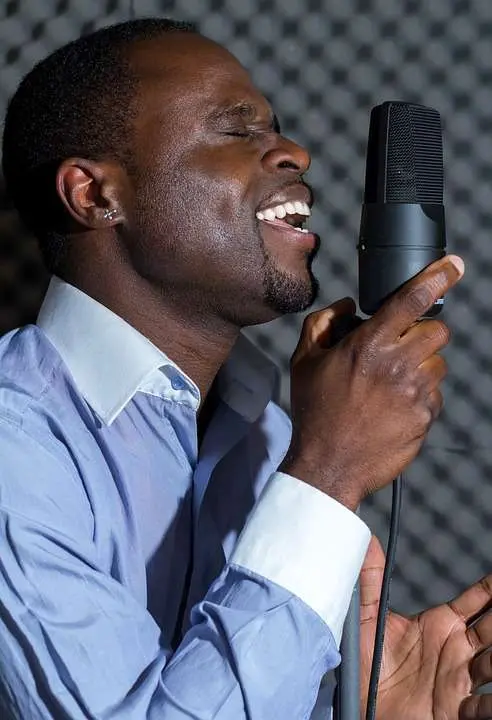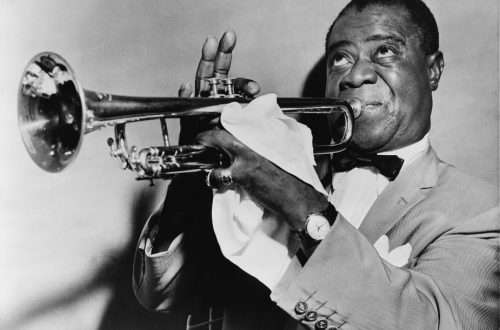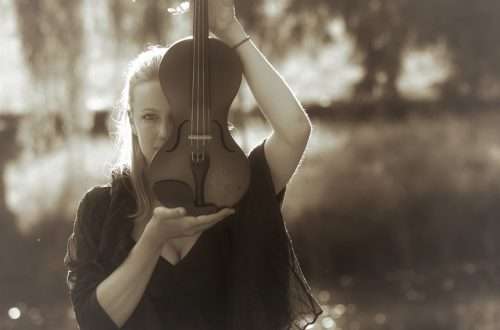
In search of a master
Contents
If watching the next tutorials from the “how to …” series still does not give results and despite your hard work with virtual teachers, you are not in the place you dreamed of when you started your adventure with singing, maybe it’s time to confront reality? How about a singing lesson?
I remember my beginnings very well. I will spare you childhood stories because singing is as natural for a child as dancing, drawing and other forms of play. He certainly doesn’t think in terms of judging his abilities at what he does. As a teenager, I began to specialize in ever more elaborate tortures against my neighbors, from playing the piano with all the lapels open to be heard in the yard, to wild screams with which I expressed my rock and metal fascinations. At that time, I had no knowledge of singing, but I already had several beliefs. First of all, I thought that a cigarette smoked just before singing gave me a nice hoarseness, second – the higher I want to sing, the louder I have to “tear out”, third – bream without talent go to singing lessons. As you can imagine, none of these beliefs brought me closer to singing better. Fortunately, I was surrounded by people whose advice helped me make some good decisions. Thanks to them, I decided to go to singing lessons.
That moment influenced my whole life. Not only have I met many wonderful teachers, personalities and artists on my new path, but I have also started teaching myself, finding in it my calling and feeling great satisfaction. And it all started when I wanted to improve my amateur singing for my deodorant a little.
Find yourself in the thicket of information
Let’s start from the beginning, i.e. ask yourself a few basic questions: do you want to work with your voice? Do you want to start using it consciously? Do you feel you have more to say than your voice can express? If the answer to all these questions is yes, then maybe you should go to a singing lesson.
There are a ton of YouTube channels dedicated to vocal lessons, recorded by professionals and amateurs. Unfortunately, I have not heard anyone who is at the beginning of their vocal path help. Just as I do not believe in the effectiveness of group voice-broadcasting classes, I have many doubts about videos that supposedly teach interested parties how to sing “high, loud and without breaking”. These types of tutorials are mainly used to promote the teachers themselves and their methods. I am not saying that it is of no use to anyone. For those who have already found their way to working with voice, some information may prove very helpful, but it is worthless for a beginner.

You won’t learn to drive in Need For Speed. Contacting a singing teacher is like driving a car with an instructor. If he is a professional, he can adapt the way of working to the future driver, if he is patient and empathetic, it will probably make you pass the exam the first time. As a vocalist, your test is how you feel on stage. The methods used by the singing teacher should lead you to a situation where you feel composed and at ease. These two elements make up a singer’s self-esteem and it depends on them how far he will “get”.
Suppose you have already made the decision to go to singing lessons. Spread the tongue among those who deal with singing. There is no better advertisement for a good teacher than other satisfied students. However, if there is no such person around you, check the internet. The advertising pages are bursting with offers for vocal lessons, voice broadcasting, etc. The only question is how are you supposed to know that out of these hundreds of ads, this is the one that belongs to the teacher you will enjoy working with? I have some suggestions.
X-ray the teacher
- Think about what effect you want to get. There are several schools / trends in Poland that specialize in specific vocal techniques. Depending on what kind of singing you are interested in, the teacher should inform you about the tools he works with and what he can offer you. Effects such as a crunch or a growl will be unheard of for a classical broadcast teacher, but the Complete Vocal Technique teacher will accept such a screamer with open arms. The most popular schools are: classical, Mix Technique, Complete Vocal Technique and white singing. I will devote more space to all of them in the following articles.
- Check what is the experience of a given teacher. Is she a beginner in this topic musicology student or an old classics teacher? In order to teach, you need to be up to date with what is happening in the vocal world. The latest research on the human voice improves singing techniques, making teachers’ tools more precise in solving various vocal problems. It is important that the teacher is able to deal with a wide range of problems, and not to adjust students to their own limited methods. The teacher’s age does not really matter. Also, whether he is an active musician or just an educator is of little importance. I went to many different teachers and, contrary to appearances, it was those who rarely appeared on stage who showed me the most.
- If an advertisement catches your attention, just give us a call. The conversation, the information that the teacher gives you will tell you a lot. Use your intuition. The voice is you – with your fears and dreams, with fear and courage, difficult emotions and enthusiasm to discover. Consider whether this person trusts you and whether you want to share all of this with them in the future.
If you are already taking singing lessons but still have doubts as to where this is all going, check with your teacher. Try to honestly evaluate your cooperation, you do it for yourself. A poor teacher is like a weak psychotherapist, his alleged competence can make you feel guilty that “you are still working too little on yourself” and “still something does not work out”, and worst of all – may not solve your vocal problems, but only deepen them.
What your singing teacher should be able to do
- What is most important in a good singing teacher is his passion and commitment to what he does. Such a teacher never stops learning and gathering information for his students. If he cannot answer your question, he will do anything to get that answer.
- A good ear is not a tasty borscht dumpling, it’s the ability to catch, name and fix vocal problems with the right tools / exercises. Your teacher should know what kind of singing habits prevent you from using your voice freely. He should hear them and change them in such a way that you feel that it is natural for you and, above all, that you feel that it really helps you! A good teacher knows what he hears.
- Results! When you go to the doctor you expect him to heal you, go to a mechanic to fix your car. A singing teacher is not only a nice guy who knows a few songs and tells you what you are doing wrong, he is primarily a person whose task is to bring out the natural sound of your voice, broaden the scale and move freely around it. In addition, he should explain to you how your instrument works and ensure that knowledge is communicated in an understandable way. If you feel even more confused after the lesson, and after a month you do not see any effects of work, feel free to start looking for someone else. This flower is half the world.
- Sing! Perhaps it is obvious that the teacher should sing. However, who has not heard the story of Ela Zapendowska and her wonderful pupils, such as Edyta Górniak? Your teacher should be able to demonstrate what a good and healthy vocal technique sounds like.





